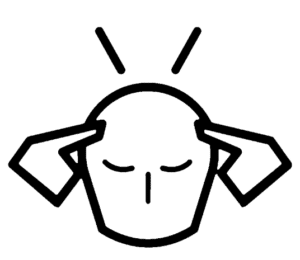The discussion regarding wellness and recovery diverges in many paths due to our rapid-paced reality. Today, we can witness that the desire for immediate satisfaction frequently overshadows the importance of long-term health maintenance.
Discussions around these topics often lead to the complex issue of chronic diseases, which are surrounded by misconceptions, varied experiences, and a wide spectrum of therapeutic options.
Among these treatments, homeopathy has been introduced. Yet, how it stands in comparison to the challenges posed by chronic illnesses raises curiosity. More intriguingly, could a lifestyle alteration enhance its effectiveness? Delving into these queries might unveil insights that aid in navigating the management of chronic conditions more effectively.
Discussions around these topics often lead to the complex issue of chronic diseases, which are surrounded by misconceptions, varied experiences, and a wide spectrum of therapeutic options.
Among these treatments, homeopathy has been introduced. Yet, how it stands in comparison to the challenges posed by chronic illnesses raises curiosity. More intriguingly, could a lifestyle alteration enhance its effectiveness? Delving into these queries might unveil insights that aid in navigating the management of chronic conditions more effectively.
What is Chronic Illness?
A chronic illness endures over an extensive period, often for the individual’s lifetime, in contrast to acute ailments that resolve relatively quickly. Persistent disorders such as diabetes, cardiovascular disease, and gout not only become a constant aspect of someone’s life requiring continuous management but also impact emotional, psychological, and social well-being, making them a formidable adversary.Difference Between Acute And Chronic Diseases
| Aspect | Acute Diseases | Chronic Diseases |
| Duration | Short-term; usually lasts for days to weeks. | Long-term; it can persist for months, years, or sometimes even a lifetime. |
| Onset | Sudden and rapid. | Gradual; develops slowly over time. |
| Symptoms | Often severe and noticeable. | Can be mild, moderate, or severe; sometimes symptoms are constant, other times they come and go. |
| Examples | Common cold, flu, acute appendicitis. | Diabetes, heart disease, arthritis. |
| Treatment Goal | Aimed at quick recovery; often involves treating symptoms or fighting off an infection. | Focuses on slowing progression, managing symptoms, and maintaining a good quality of life. |
| Outcome | Usually leads to full recovery. | Often requires ongoing management; may lead to gradual health decline. |
| Impact on Lifestyle | Typically minimal; normal activities can resume after recovery. | Can significantly affect daily life; may require long-term adjustments to activities and diet. |
How Does Your Lifestyle Impact Your Approach to Chronic Illness Prevention?
While medications and treatments play a significant role in managing chronic diseases, lifestyle adjustments are crucial. Minor shifts in lifestyle can drastically influence the course of a chronic disease.1. Food Is The Best Nutrition That Heals
Harnessing good nutrition is crucial for managing chronic illnesses through lifestyle changes. The food and beverages consumed become part of our being. Individuals battling long-term conditions like diabetes, cardiovascular diseases, or autoimmune disorders can significantly enhance their health by adopting a diet aligning with their health objectives.- Healthy Eating: Incorporating a diverse array of foods ensures the body receives essential nutrients, vitamins, and minerals necessary for optimal function.
- Different Diets: Certain health issues necessitate specific dietary plans. For instance, individuals with high blood pressure may require low-sodium diets, those suffering from celiac disease might need gluten-free options, and people with digestive issues may benefit from high-fiber diets. Consulting a nutritionist can help you get appropriate guidance.
- Staying Hydrated: Adequate hydration enables cells to perform their functions effectively, significantly enhancing both physical and mental performance.
2. Physical Activity: More Than Just Working Out
The concept of physical exercise can seem overwhelming for people who experience pain or discomfort.- Customized Exercise Plans: Choosing exercises that align with your skills and preferences is essential. Activities such as swimming, yoga, walking, or exercises that can be done while seated could greatly improve your health without straining your body.
- Focus on Regularity Rather Than Intensity: Incorporate physical activity into your daily life in a way that is sustainable and enjoyable, rather than engaging in sporadic, intense exercise sessions that could lead to fatigue.
3. Addressing Stress: A Vital but Often Ignored Element of Well-being
Chronic stress can aggravate almost all chronic conditions due to inflammation and hormonal imbalances.- Mindfulness and Meditation: These techniques can help calm your mind, reduce anxiety, and enhance your stress management capability.
4. The Importance of Sleep for Health
Getting enough sleep is crucial, not just a convenience, especially for individuals managing chronic health problems. Sleep affects your mood, immune system effectiveness, and how you experience pain.- Setting a Regular Sleep Schedule: Sticking to a consistent schedule for sleeping and waking up can drastically improve sleep quality.
- Sleep Hygiene Tips: Limiting screen time before sleeping, ensuring your sleeping area is comfortable, and avoiding caffeine late in the day can all contribute to better sleep.
Why Homeopathy Treatment Is Good?
Homeopathy remedies are therapeutic approach based on the principles that means that chemicals that can cause symptoms in a healthy person can treat similar symptoms when given in very small amounts. Here, we look at the different parts of homeopathy treatment’s gentle way of healing.-
Individualised Care
-
Not Many Side Effects
-
Help For A Range Of Conditions
-
Getting Stronger
-
Making People Feel Good Emotionally And Mentally
-
A Practice That Will Last
Why You Should Choose Dharma Homeopathy?
Dharma Homoeopathy has the best homeopathic doctor who is not only skilled in homeopathic remedies but also works hard to understand the unique story of each person they help. Because they are caring, they can make personalized treatment plans that fit the unique experiences of each person. These plans take into account all the different ways that chronic diseases can affect a person’s life.Bottom Line
Chronic illness is a very personal and complicated journey. Each person’s road is shaped by a different set of factors. In this complicated picture, homeopathy remedies stand out as a possible partner that can help with healing on all levels if used wisely and along with changes to one’s lifestyle. In the end, the best way to treat a chronic sickness is one that is tailored to each person, uses a variety of methods, and looks at all aspects of healing, from the food we eat and the air we breathe to the remedies we choose and the thoughts we hold. This all-around approach might help us not only deal with illness but also find a way to real health and energy.FAQs
Integrating lifestyle changes such as nutrition, exercise, stress management, and sleep hygiene practices can complement homeopathy treatment by supporting overall health and well-being.
Adequate sleep is essential for managing chronic illnesses, as it affects mood, immune function, pain tolerance, and overall health outcomes.
Lifestyle changes, including nutrition, exercise, stress management, and sleep habits, play a crucial role in managing chronic illnesses and improving overall health outcomes.













